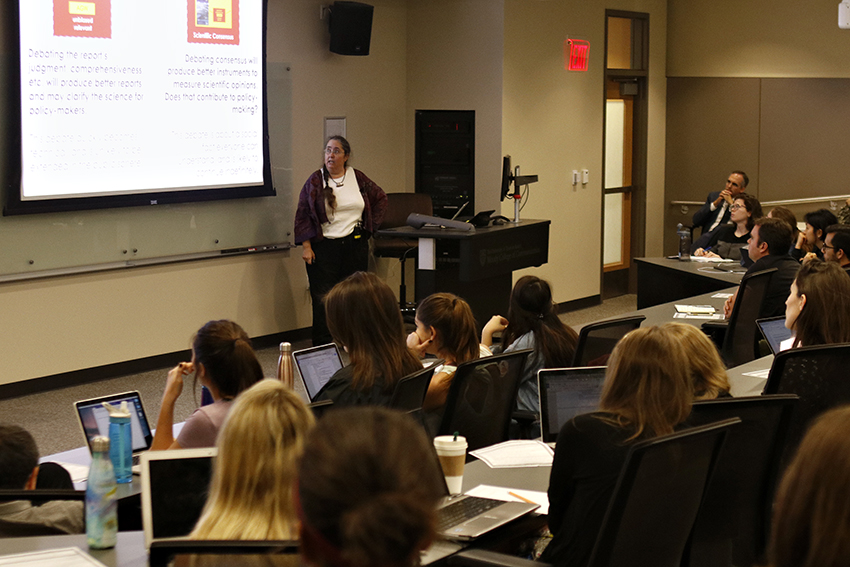Scientists are wasting time trying to force a consensus about climate change issues when they should be focusing on strengthening their argument, said Jean Goodwin, professor in the Department of Communication at North Carolina State University.
Goodwin led “Ethics and Climate Change Communication,” the final installment of this semester’s Media Ethics Initiative Speaker Series, at the Belo Center for New Media on Tuesday.
“(Climate change scientists have) undertaken this burden to answer that there is a scientific consensus,” Goodwin said. “But it looks like there isn’t, so they’re stuck.”
Goodwin said the Intergovernmental Panel on Climate Change assesses climate change science and has released five reports in the past 27 years, the most recent of which was released in 2014. Scientists have used these findings as the basis of several studies into whether or not climate change is an accepted truth among the scientific community, Goodwin said.
“We don’t seem to be getting any closer to figuring out whether there really is a consensus,” Goodwin said. “The question has gotten more sophisticated, the methods have become more elaborate, but our knowledge has not improved that much.”
Goodwin said climate change advocates have two options: focus on persuading their audience of a consensus or simply present their findings.
“Dissenting reviews will be incorporated within the reports, so reports will get better, and they may even clarify the science for policy makers,” Goodwin said.
Scientists must have a mutual respect for each other’s differing opinions concerning climate change to have a meaningful dialogue, Goodwin said. Radio-television-film junior Jason Head said he found this point to be especially important with regards to today’s political climate.
“It’s important to listen to other arguments, find the reasoning and rationality in those arguments, find where they are making important statements and try to answer them with evidence and not just conviction,” Head said.
Scott Stroud, director of the Media Ethics Initiative, said choosing to dwell on disagreements about climate change rather than finding solutions adds to the already pressing problem.
“What are the choices we make in this, and what kind of effects and values are those choices reflecting?” Stroud asked.
Goodwin said despite the uncertainty surrounding climate change, scientists must continue refining their research to find a solution.
“We can’t eliminate disagreement,” Goodwin said. “We can choose our commitments.”





















